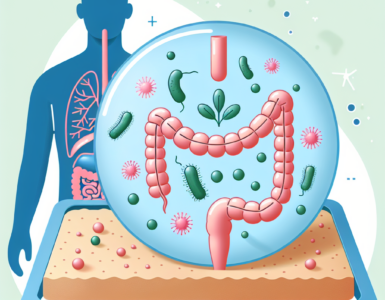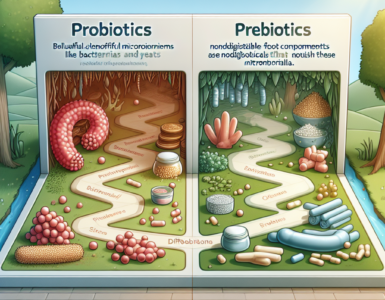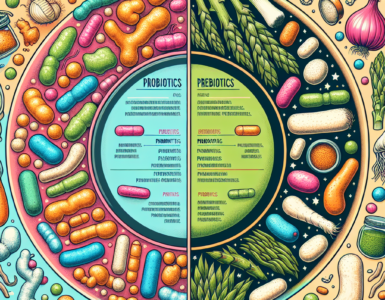In today’s fast-paced world, where everything is just a click away, cultivating the virtue of patience can indeed be challenging. However, the value of patience is immeasurable, and it can contribute to an overall sense of wellness. Patience is essential because it teaches us to wait for things that are worth waiting for and helps us appreciate life’s journey. This article explores the science behind patience and happiness, how to cultivate patience in daily life, the benefits of patience in relationships, and patience’s role in personal growth.
Understanding the Value of Patience
Defining Patience and Its Importance
Patience is an essential quality that can help us lead a more fulfilling life. It is the ability to endure something without getting upset or angry, particularly when faced with delays, adversity, or difficult circumstances. Patience is not only a virtue but also a skill that can be developed through practice.
When we practice patience, we learn to be more resilient and mentally strong. We are better equipped to handle stressful situations and are less likely to suffer from anxiety or depression. Patience can also help us build better relationships with others, as it allows us to be more understanding and compassionate.
The Connection Between Patience and Time
Patience is intrinsically linked to time, as it involves waiting for something over an extended period. It requires us to be present in the moment and to focus on what is happening right now, rather than worrying about the future or dwelling on the past.
Learning to be patient can be challenging, especially in a world where we are used to instant gratification. However, by practicing patience, we can gain a sense of control over our lives. We learn to accept that some things take time and that we cannot always control the outcome of a situation.
Patience can also help us appreciate the journey, rather than just focusing on the destination. When we are patient, we can enjoy the process of achieving our goals, rather than just waiting for the end result.
The Benefits of Patience
There are many benefits to cultivating patience in our lives. One of the most significant benefits is that it can help us reduce stress and anxiety. When we are patient, we are less likely to get worked up over small things and can remain calm in difficult situations.
Patience can also help us make better decisions. When we rush into things, we are more likely to make mistakes or overlook important details. By taking the time to be patient and consider our options, we can make more informed choices.
Finally, patience can help us build stronger relationships with others. When we are patient with others, we are more likely to listen to their perspective and understand their point of view. This can help us build trust and respect with others, which is essential for healthy relationships.
Conclusion
Overall, patience is a crucial skill that can help us lead a more fulfilling life. By learning to be patient, we can become more resilient, mentally strong, and better equipped to handle stressful situations. We can also build stronger relationships with others and make better decisions. So the next time you find yourself getting frustrated or impatient, take a deep breath and remind yourself of the value of patience.
The Science Behind Patience and Happiness
The Role of Dopamine and Serotonin
The brain chemical dopamine is responsible for feelings of pleasure, motivation, and reward. When we practice patience, our brains release dopamine, which makes us feel good, increasing our overall happiness levels. This chemical is also essential for learning and memory, which means that practicing patience can help us retain information better and improve our cognitive abilities.
Similarly, serotonin, a neurotransmitter linked to mood regulation, is also released when we practice patience. This increased level of serotonin can lead to more positive emotions, such as contentment and satisfaction. In addition, serotonin plays a crucial role in regulating our sleep patterns, appetite, and digestion, all of which are essential for maintaining good physical and mental health.
How Patience Affects Our Mental Health
Studies have shown that people who practice patience are generally happier, more satisfied, and less stressed than those who become impatient. Patience can help people build resilience and mental strength, leading to better mental health outcomes. By learning to be patient, individuals can develop coping mechanisms to deal with disappointment and setbacks more effectively, leading to a more positive outlook on life.
Moreover, practicing patience can help reduce anxiety and depression. When we are patient, we learn to control our thoughts and emotions, which can reduce the symptoms of these mental health disorders. Additionally, patience can help improve our relationships with others. When we are patient, we are better able to listen to others, understand their perspectives, and communicate effectively, leading to stronger and more fulfilling connections.
The Benefits of Practicing Patience
Practicing patience can have numerous benefits in all areas of our lives. In addition to improving our mental health, patience can also enhance our physical health. When we are patient, we are less likely to engage in risky behaviors that can harm our bodies, such as smoking, drinking, or overeating. Additionally, patience can help us make better decisions, as we take the time to consider all the options and consequences before acting.
Furthermore, practicing patience can help us achieve our goals. When we are patient, we are better able to persevere through obstacles and setbacks, leading to greater success in our personal and professional lives. Patience can also help us cultivate a sense of gratitude, as we learn to appreciate the present moment and all the good things in our lives.
Conclusion
In conclusion, practicing patience can have numerous benefits for our mental and physical health, our relationships, and our overall well-being. By understanding the science behind patience and happiness, we can learn to cultivate this valuable trait in our lives and reap the rewards that come with it.
Cultivating Patience in Our Daily Lives
Mindfulness and Meditation Techniques
One of the most effective ways to cultivate patience is through mindfulness practices such as meditation. Mindfulness practices can help individuals become more present in their daily lives, reducing anxiety and stress, and helping to increase focus and awareness. Meditation can also help people cultivate a more peaceful and relaxed mindset, making them less likely to become upset or frustrated in stressful situations.
One popular meditation technique is the body scan, which involves focusing on each part of the body, one at a time, and becoming aware of any sensations or tensions. This technique can help individuals become more in tune with their bodies and reduce stress levels.
Another mindfulness practice is mindful breathing, which involves paying attention to the breath and focusing on the present moment. This technique can help individuals become more centered and calm, even in challenging situations.
Setting Realistic Expectations and Goals
An essential aspect of cultivating patience is setting realistic expectations and goals. When we set goals that are too lofty, or our expectations are too high, we can become impatient and frustrated when we don’t achieve them quickly enough. Setting realistic expectations and goals can help individuals become more patient with themselves and others and stay motivated towards their goals.
It’s also important to remember that progress takes time and that setbacks are a natural part of the process. When we encounter obstacles or challenges, it’s essential to approach them with a growth mindset and view them as opportunities for learning and growth.
One way to set realistic goals is to break them down into smaller, more manageable steps. This approach can help individuals stay motivated and focused on their progress, rather than becoming overwhelmed by the end goal.
In addition to setting realistic goals, it’s important to celebrate progress along the way. Recognizing and acknowledging small successes can help individuals stay motivated and build confidence in their abilities.
The Benefits of Patience in Relationships
Strengthening Communication and Understanding
Patience in relationships can help to build understanding, empathy, and trust between partners. When individuals practice patience, they are more inclined to listen and understand their partner’s point of view, leading to a more profound, meaningful connection. Regularly practicing patience in relationships also leads to healthier, more productive communication, which can help to resolve conflicts more effectively.
For instance, when one partner is upset or frustrated, the other partner can take the time to listen and understand their perspective. This can help the upset partner feel heard and validated, and can lead to a more productive conversation. When both partners are patient with each other, they can work together to find solutions and compromise when necessary.
Furthermore, practicing patience in relationships can also lead to increased trust. When one partner is patient with the other, it shows that they are willing to take the time to understand their partner’s needs and wants. This can help to build a foundation of trust, which is essential for a healthy, long-lasting relationship.
Fostering Empathy and Compassion
Practicing patience, particularly in intimate relationships, can help develop empathy and compassion for one another. When individuals are patient with each other, they can see things from each other’s perspective, leading to a deeper connection and understanding of one another. Cultivating patience in relationships can also lead to more profound levels of compassion, making it easier to forgive each other and build stronger, healthier relationships.
For example, when one partner makes a mistake, the other partner can practice patience and understanding, rather than getting angry or upset. This can lead to a more compassionate response, which can help to strengthen the relationship and build trust.
Furthermore, practicing patience and empathy can also lead to a more fulfilling sex life. When partners take the time to understand each other’s needs and desires, they can work together to create a more intimate and satisfying experience.
In conclusion, practicing patience in relationships can lead to stronger communication, increased trust, and deeper levels of empathy and compassion. By taking the time to understand each other and work through conflicts, partners can build healthier, more fulfilling relationships that last a lifetime.
Patience and Personal Growth
Embracing Challenges and Learning Opportunities
Patience is an integral part of the personal growth process. By learning to be patient, individuals can embrace challenges and learning opportunities without becoming discouraged or frustrated. Cultivating patience allows individuals to stay focused and disciplined, working towards their goals methodically and with determination.
The Power of Resilience and Adaptability
Patience can also help individuals develop resilience and adaptability, two essential traits for navigating life’s challenges. When we practice patience, we learn to persevere through difficulty, becoming more mentally and emotionally strong as a result. People who cultivate patience are more likely to overcome setbacks and obstacles and adapt to changes in their environment, leading to a more fulfilling life journey.
Conclusion
Practicing patience can have a transformative effect on our overall sense of wellness. Through cultivating patience, we can build mental and emotional resilience, improve our communication and relationships, and develop the adaptability necessary to navigate life’s challenges. The virtue of patience is an invaluable gift that can help us appreciate life’s journey fully.











